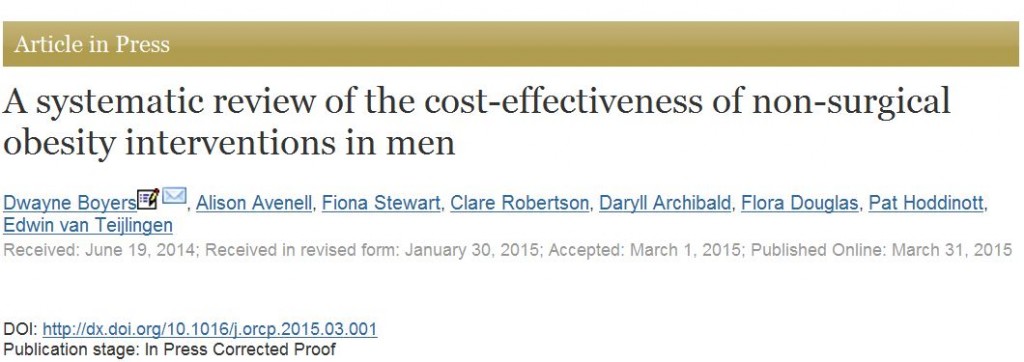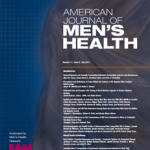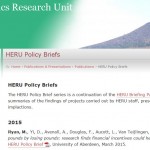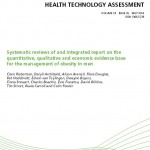 Colleagues associated with the Health Economics Research Unit (HERU), Health Services Research Unit (HSRU) and the Rowett Institute of Nutrition and Health (all based at the University of Aberdeen), the Nursing, Midwifery & Allied Health Professional Research Unit (University of Stirling), the Scottish Collaboration for Public Health Research & Policy (SCPHRP) based at the University of Edinburgh and the Centre for Midwifery, Maternal and Perinatal Health (CMMPH) at Bournemouth University published their latest paper on obesity research. The paper ‘A systematic review of the cost-effectiveness of non-surgical obesity interventions in men’ is published in the journal: Obesity Research & Clinical Practice. This systematic review summarises the literature reporting the cost-effectiveness of non-surgical weight-management interventions for men. Studies were quality assessed against a checklist for appraising decision modelling studies. This research is part of the larger ROMEO study.
Colleagues associated with the Health Economics Research Unit (HERU), Health Services Research Unit (HSRU) and the Rowett Institute of Nutrition and Health (all based at the University of Aberdeen), the Nursing, Midwifery & Allied Health Professional Research Unit (University of Stirling), the Scottish Collaboration for Public Health Research & Policy (SCPHRP) based at the University of Edinburgh and the Centre for Midwifery, Maternal and Perinatal Health (CMMPH) at Bournemouth University published their latest paper on obesity research. The paper ‘A systematic review of the cost-effectiveness of non-surgical obesity interventions in men’ is published in the journal: Obesity Research & Clinical Practice. This systematic review summarises the literature reporting the cost-effectiveness of non-surgical weight-management interventions for men. Studies were quality assessed against a checklist for appraising decision modelling studies. This research is part of the larger ROMEO study.
Prof. Edwin van Teijlingen
Faculty of Health & Social Sciences
Reference:
Boyers, D., Avenell, A., Stewart, F., Robertson, C., Archibald, D., Douglas, F., Hoddinott, P., van Teijlingen, E., A systematic review of the cost-effectiveness of non-surgical obesity interventions in men, Obesity Research & Clinical Practice (online first)
 “New” FHSS paper on obesity published July 2017
“New” FHSS paper on obesity published July 2017 Policy brief on Obesity
Policy brief on Obesity Changing diet and exercise, offering men-only groups, and humour may be the recipe for tackling male obesity
Changing diet and exercise, offering men-only groups, and humour may be the recipe for tackling male obesity










 Beyond Academia: Exploring Career Options for Early Career Researchers – Online Workshop
Beyond Academia: Exploring Career Options for Early Career Researchers – Online Workshop UKCGE Recognised Research Supervision Programme: Deadline Approaching
UKCGE Recognised Research Supervision Programme: Deadline Approaching SPROUT: From Sustainable Research to Sustainable Research Lives
SPROUT: From Sustainable Research to Sustainable Research Lives BRIAN upgrade and new look
BRIAN upgrade and new look Seeing the fruits of your labour in Bangladesh
Seeing the fruits of your labour in Bangladesh ECR Funding Open Call: Research Culture & Community Grant – Apply now
ECR Funding Open Call: Research Culture & Community Grant – Apply now ECR Funding Open Call: Research Culture & Community Grant – Application Deadline Friday 12 December
ECR Funding Open Call: Research Culture & Community Grant – Application Deadline Friday 12 December MSCA Postdoctoral Fellowships 2025 Call
MSCA Postdoctoral Fellowships 2025 Call ERC Advanced Grant 2025 Webinar
ERC Advanced Grant 2025 Webinar Update on UKRO services
Update on UKRO services European research project exploring use of ‘virtual twins’ to better manage metabolic associated fatty liver disease
European research project exploring use of ‘virtual twins’ to better manage metabolic associated fatty liver disease